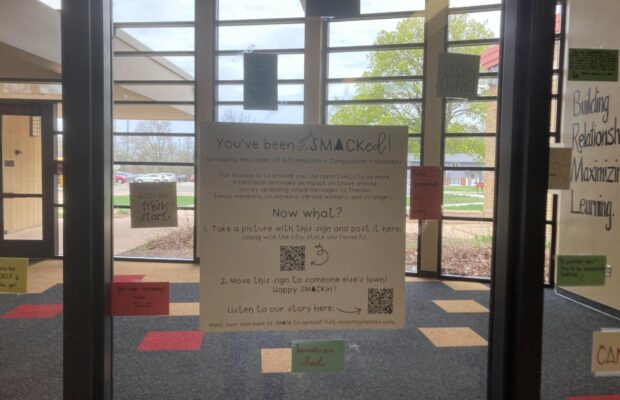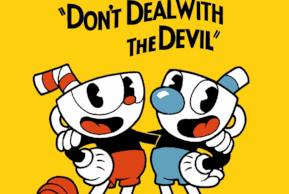Part One of Three Part Notes for Songwriting Success: Keys to Creating Catchy Chords, Lyrics
By Brandt Baron on January 21, 2022
Writing a song is something I’ve noticed that many teenagers want to do. Many teenagers dream of releasing songs that get billions of plays, but few of them actually do that. They don’t know how to go about releasing music and getting it out there, so I’m starting this series to help you learn how to go about writing a song, releasing it and getting your music out there and heard.
There will be three installments in this series (or trilogy, if you will). This is the first paper where I will go through the process of writing a song: the music side AND the lyrical side. The second story will be focused on recording and releasing songs on Spotify, etc. The third and final installment will be about getting your music out there and heard by people.
But before I do that, let me just say that these papers are not meant to be seen as a set of rules because when it comes to music, there are no rules. The purpose of this is to help you get started writing music. You get to come up with your own song writing sequence. You get to make your own sound and vibe. I’m just here to help you get started.
One of the things you must understand is how a chord works. That is critical to understand what I’m about to tell you. If you don’t understand how chords work, search “Michael New” on YouTube and find his video on basic chords because if I tried to explain it in a paper, it wouldn’t make any sense. I have found his channel extremely helpful, and while he doesn’t post anymore, you can still learn a lot from him.
Now, in order to determine what chords you want in your song, you may just have to play around with them, but if you already know how keys work and know your range, you can determine what key you want your song to be in and that way you can come up with chords much easier, but if you’re just starting out in music and don’t quite understand keys yet, just stick around.
If you’re writing a happier song, you may want to start out with some chords such as C, G, Am and D. Mess around with them however you’d like. You can put them in whatever order you like: G, D, Am, C, etc., etc. That’s part of the beauty of this, no rules.
But if you’re writing a sad song, you may want to start with chords such as C, Em, Am and F. Mess around with these chords. Look at key charts on the Internet. Major keys are typically used for happier songs, and minor keys are typically used for mysterious or sad songs, but again, there are no rules.
Once you have a chord progression or even a fingerstyle progression you like, coming up with lyrics is the next step. With lyrics there are no set in stone guidelines like there are with music theory. One of the things people might tell you is that the lyrics need to rhyme. Whilst that can help, it’s not a necessity. However, if you’re writing lyrics for a rap song, then rhyming is something you should definitely implement into your lyrics.
Whatever you’re writing about, take time to revise and edit. Write as much as you want, but don’t immediately call it perfect and never change it again because it’s likely that you’ll want to go back and change some of the lyrics because you don’t like them. The amount of times I’ve written an entire song and never changed it again is very low. As you improve your songwriting skills, this may become more common, but even then you may go back and edit.
But I haven’t answered the question “What makes lyrics good?”. Well, it’s impossible to make an objectively good lyric because there’s always going to be someone who doesn’t like it. You have to find your own writing style, but you want to have emotional lyrics that grip people’s hearts. Even just one lyric at the end of the chorus can really hit people hard—one lyric that has the entire message of the song in it. Pour your heart out into the whole song and see what comes of it. If you don’t like it, try something else.
One more thing that you might find helpful is using analogies. For example if you’re writing a song about a toxic relationship, use a storm analogy. The relationship or the other person was like a storm. It may seem like a cheesy, poor analogy, but you’d be surprised what you can write with some cheesy lyrics.
I can’t give you a solid piece of advice that will help you write better songs, but I can tell you that with experience comes better lyrics. You’re gonna write some songs you hate, but don’t give up. Don’t throw them away. There was a song I wrote back in 2017-ish. It was really bad, but the tune was good. The hook was good, and I loved the idea. This was before I had any knowledge of music theory. I was just 10 years old writing some random lyrics, but last year I turned the hook I wrote four years ago into a full song, a song that I was proud of. It took a while, but I put chords to it. I even wrote lead guitar parts. Don’t throw lyrics away no matter how bad they may seem. Just keep writing. Write about things you’re passionate about and think about the way you feel about it.
Writing a song isn’t always easy, but with time you’ll improve.
Search
News

Peet Good Vibes enrichment expanding impact
Lana Greenleaf | April 23, 2024In February, a new enrichment started at Peet. The Good Vibes enrichment is a space during Tiger Time on Fridays where students make positive and inspirational quotes to tape...
-
 Lana Greenleaf | April 22, 2024
Lana Greenleaf | April 22, 2024
-
 Annie Seery | April 17, 2024
Annie Seery | April 17, 2024
Colleges returning to using standardized testing for admissions
-
 Hanna Lane | April 17, 2024
Hanna Lane | April 17, 2024
-
 Hanna Lane | April 9, 2024
Hanna Lane | April 9, 2024
-
About
The Tiger Hi-Line Online is an award-winning creation produced by the journalism students at Cedar Falls High School. We produce written, photographic and video stories of the latest news around campus as well as teen-centered topics from around the world. The content is created entirely by students, primarily from the newspaper, broadcast and yearbook courses at Cedar Falls High School. Please email any story ideas to hilinestaff@gmail.com.Tags
2018-2019 2019-2020 alayna yates AOTW art artist of the week athlete of the week basketball books Cedar Falls High School CFHS choir Christmas college COVID donald trump Eden Davis entertainment Erin McRae feature Football games halloween home homecoming Iowa Jaden Merrick jared hylton movies music news opinion our view politics prom robotics Sabine Martin Sal Engle Skylar Promer Sophia Schillinger sports state Swimming video games volleyball




You must be logged in to post a comment Login